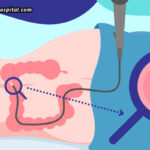Setting off on a path to improved digestive health is about more than simply treating symptoms; it’s about adopting lifestyle modifications that support general health. Let’s address the importance of factors affecting lifestyle for digestive health, simple but significant lifestyle adjustments that people may make, and their dramatic implications on gastrointestinal well-being. From dietary changes to stress reduction methods and exercise regimens, every step contributes towards a healthier digestive system.
The gut microbiota
Trillions of bacteria live in our gut microbiota, which is crucial in determining our general health and digestive health. The delicate balance of the gut microbiome is influenced by dietary choices, medications, stress, and a variety of lifestyle variables. These factors can have a significant impact on immune response and digestion. People may recognize the importance of preserving a healthy gut microbiota and putting specific treatments in place to promote its stability by comprehending this intricate interaction. Optimizing the gut microbiota provides a route to better digestion and overall wellness. Understanding how lifestyle choices affect the gut microbiome highlights how crucial it is to develop routines that support a varied and robust microbial population in order to reduce the risk of gastrointestinal disorders, thus promoting overall health and vitality.
The role of good diet
The right kind of dietary approach may help manage any kind of gastrointestinal disorders and result in fostering optimal digestive function. Probiotics, prebiotics, fibre-rich meals, and enough water can all help to support gut health, prevent constipation, ease the symptoms of irritable bowel syndrome, and reduce the risk of digestive disorders. Fruits, vegetables, and whole grains are examples of foods high in fibre that promote regular bowel movements and assist in digestion by giving stools more volume. Prebiotics, which are present in foods like garlic and onions, feed the good bacteria that probiotics—many of which are found in fermented foods like yoghurt and kimchi—introduce to the stomach. Furthermore, staying hydrated is essential for preserving healthy digestion and avoiding constipation. Adopting a diet rich in these beneficial nutrients for the stomach and making sure you drink enough water gives you the power to optimize digestive health and foster overall well-being, paving the way for a healthy and comfortable lifestyle.
Stress management techniques
From mindfulness meditation and deep breathing exercises to yoga and progressive muscle relaxation, there are various techniques that can reduce stress and calm both the mind and stomach. By encouraging awareness of the present moment, mindfulness techniques help people feel less anxious and have less stress in their digestive systems. Exercises that include deep breathing trigger the body’s relaxation response, which improves digestion and fosters a sense of peace. Yoga releases stress and improves digestion by combining breath practice with moderate movements. To lower tension and encourage relaxation throughout the body, including the digestive tract, progressive muscle relaxation is methodically tensing and releasing muscle groups. Through the regular application of these stress management strategies, you may foster a state of harmonious mind-body balance that promotes good digestive health and general well-being.
Exercise and physical activity
Frequent and regular exercise can help maintain intestinal health. Bowel motility is increased by physical exercise, which reduces gas, bloating, and diarrhoea and constipation symptoms. Choose an exercise programme that suits your requirements and tastes, whether that means doing yoga, weight training, or cardio. Cardiovascular workouts, including running, cycling, and walking, raise blood pressure and heart rate, which facilitates regular bowel movements and helps with digestion. Weightlifting and other resistance training activities enhance muscular tone and promote healthy digestion. Yoga improves digestive health, lowers stress, and promotes relaxation via the integration of breath practice and movement. You may improve your digestive system’s health, ease discomfort, and feel better about yourself by exercising on a regular basis. Try out several forms of physical exercise to discover what works best for you, and make exercise a regular part of your routine for lasting benefits.
Sleep hygiene
Do you know how important it is to get enough good sleep for maintaining intestinal health? Lack of sleep affects the makeup of the gut bacteria, interferes with digestion, and interferes with hunger management. Hence, you must improve your sleeping habits to support digestive well-being. Enhancing your sleep environment, establishing a regular sleep schedule, and developing a calming nighttime ritual can all assist to promote digestive health and enhance the quality of your sleep. Enhancing sleep quality and supporting gut health may be achieved by avoiding stimulants like caffeine and electronics before bed, practicing relaxation techniques like deep breathing or meditation, and making sure your sleeping environment is pleasant and restful. Maintaining optimum digestion and general well-being requires prioritizing enough good-quality sleep. By following these guidelines for good sleep hygiene, you can support your digestive system and enjoy improved health and vitality.
Maintaining good gut health requires implementing early lifestyle adjustments. Intermittent attention to lifestyle variables including nutrition, stress, physical activity, and sleep hygiene may cause GI disorders to arise or worsen. If these lifestyle adjustments are ignored, a person may ultimately struggle with symptoms like bloating, stomach discomfort, irregular bowel habits, and pain in the abdomen. In these situations, consulting a gastroenterologist then becomes crucial.
At Mission Gastro Hospital, our team boasts the best gastroenterologist in Ahmedabad, offering expert care that is customized to meet your needs for the best possible digestive health and well-being. A gastroenterologist can provide comprehensive assessments, diagnostic evaluations, and personalized treatment plans to address GI concerns effectively. Working with a gastroenterologist may help people manage their stress, reduce symptoms, and enhance their overall digestive health through individualized advice on dietary changes, lifestyle adjustments, and medication therapy. However, encouraging early lifestyle changes are the best possible essential actions to protect GI health and improve general well-being.








